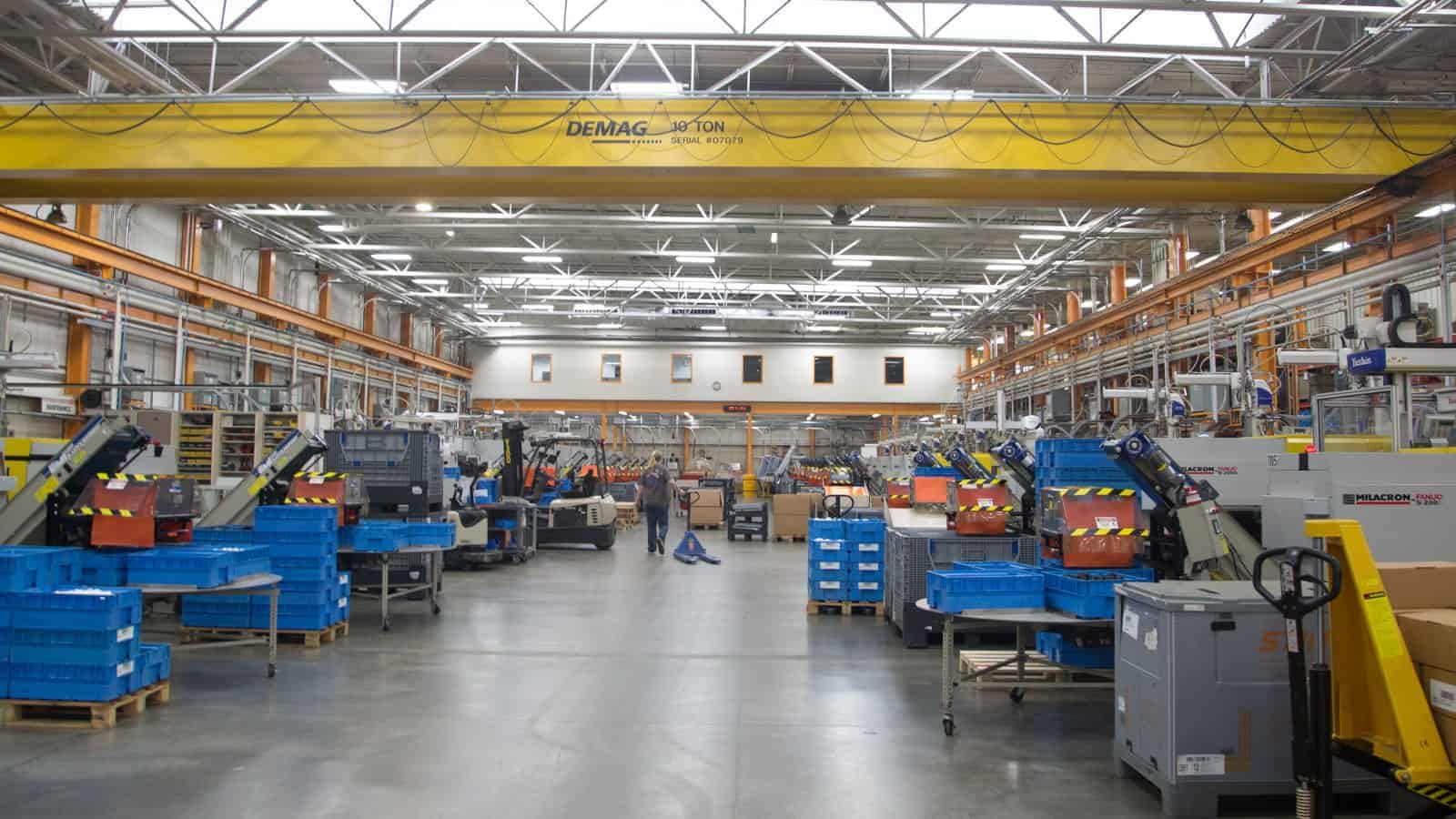SEC Reverses on Proxy Firm Rule
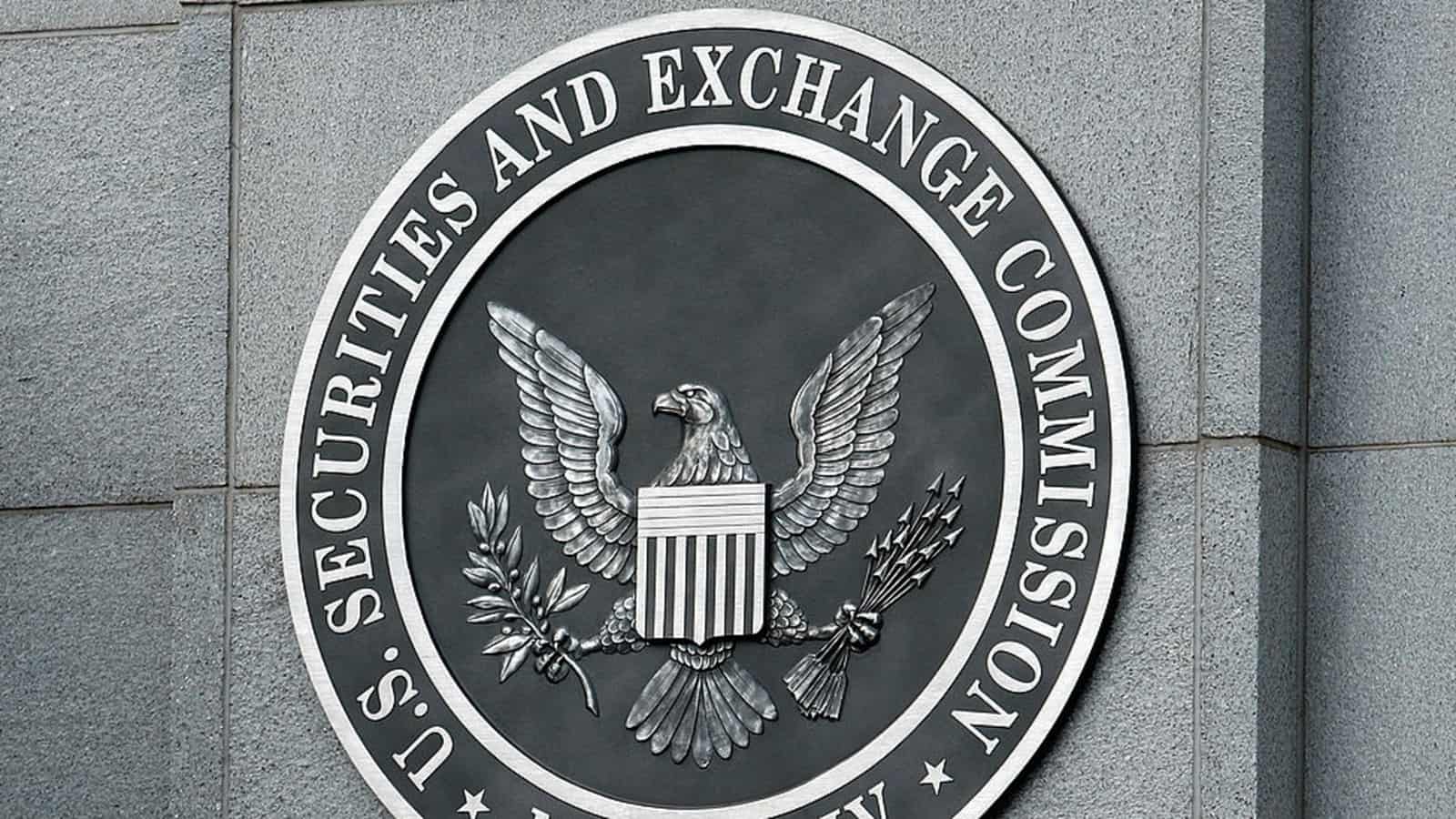
The U.S. Securities and Exchange Commission has made an about-face on commonsense investor protections it adopted last year to provide appropriate oversight of so-called proxy advisory firms—and the NAM is pushing back.
The background: Last year, the NAM won a major victory when the SEC published a new rule to regulate proxy firms, which have significant influence over public company governance decisions and the performance of shareholders’ investments. Now under new leadership, the SEC has so far refused to enforce the rule—and yesterday, the commission issued a new proposal that would wipe out important progress.
What it means: The rule secured by the NAM ensured that investors would have access to more complete and accurate information before casting proxy votes. The SEC’s new proposal would reverse the rule’s requirements that proxy firms engage with public companies—specifically rescinding the provisions mandating that the firms provide copies of their recommendations to impacted businesses and notify investors when those businesses file a response. The new proposal also weakens the SEC’s anti-fraud standards for materially misleading statements published by proxy firms.
A deeper dive: Beyond the rule itself, the action points to larger problems at the SEC.
- Politics over policy: By reversing a rule that had been developed over the course of a decade through leadership from both political parties and with significant input from all sectors, the SEC is undercutting the capital markets’ need for a steady, apolitical regulator.
- Not the first time: Even before yesterday’s rule change, the SEC had unlawfully refused to enforce the existing proxy firm rule. The NAM filed suit last month to force the SEC to abide by laws on the books.
- Arbitrary changes: The 2020 rule was set to take effect on Dec. 1 of this year, so the SEC had no new information about its impact on the market when it voted to reverse course—raising serious questions about the commission’s compliance with the Administrative Procedure Act’s prohibition on “arbitrary and capricious” rulemaking.
Next steps: The NAM is challenging the SEC’s nonenforcement of the 2020 rule in court, and we will continue to hold the SEC’s feet to the fire. We will also engage with the SEC on its new proposal and will push back on the commission’s attempts to remove these critical investor protections.
What we’re saying: NAM Senior Vice President of Policy and Government Relations Aric Newhouse released a statement on the SEC’s about-face: “The NAM is extremely concerned that the SEC has proposed substantial revisions to last year’s reasonable, light-touch proxy advisory firm rule—especially absent any new information about its impact on the market. Businesses and investors need reliable rules of the road, and the NAM is disappointed that the SEC plans to reverse course on a decade’s worth of bipartisan, consensus-driven policymaking just a year after the rule’s reforms were finalized. The SEC’s about-face is deeply troubling, but manufacturers continue to support appropriate oversight of proxy firms given their conflicts of interest, errors and outsized influence. The NAM looks forward to engaging with the SEC to defend the rule’s commonsense investor protections in the coming months.”
What they’re saying: Don’t take our word for it; check out this in-depth examination from professors Paul Rose and Christopher J. Walker at The Ohio State University Moritz College of Law, who explore the policy and legal concerns around the SEC’s actions.
Manufacturers: SEC’s About-Face Is Deeply Troubling
Washington, D.C. – Following the announcement by the Securities and Exchange Commission that it intends to rescind commonsense investor protections designed to provide oversight of so-called proxy advisory firms—little-known, unregulated entities that exert enormous influence over publicly traded manufacturers—National Association of Manufacturers Senior Vice President of Policy and Government Relations Aric Newhouse released the following statement:
“The NAM is extremely concerned that the SEC has proposed substantial revisions to last year’s reasonable, light-touch proxy advisory firm rule—especially absent any new information about its impact on the market. Businesses and investors need reliable rules of the road, and the NAM is disappointed that the SEC plans to reverse course on a decade’s worth of bipartisan, consensus-driven policymaking just a year after the rule’s reforms were finalized. The SEC’s about-face is deeply troubling, but manufacturers continue to support appropriate oversight of proxy firms given their conflicts of interest, errors and outsized influence. The NAM looks forward to engaging with the SEC to defend the rule’s commonsense investor protections in the coming months.”
-NAM-
The National Association of Manufacturers is the largest manufacturing association in the United States, representing small and large manufacturers in every industrial sector and in all 50 states. Manufacturing employs more than 12.5 million men and women, contributes $2.52 trillion to the U.S. economy annually and has the largest economic multiplier of any major sector and accounts for 58% of private-sector research and development. The NAM is the powerful voice of the manufacturing community and the leading advocate for a policy agenda that helps manufacturers compete in the global economy and create jobs across the United States. For more information about the NAM or to follow us on Twitter and Facebook, please visit www.nam.org.
NAM Opposes Book Tax
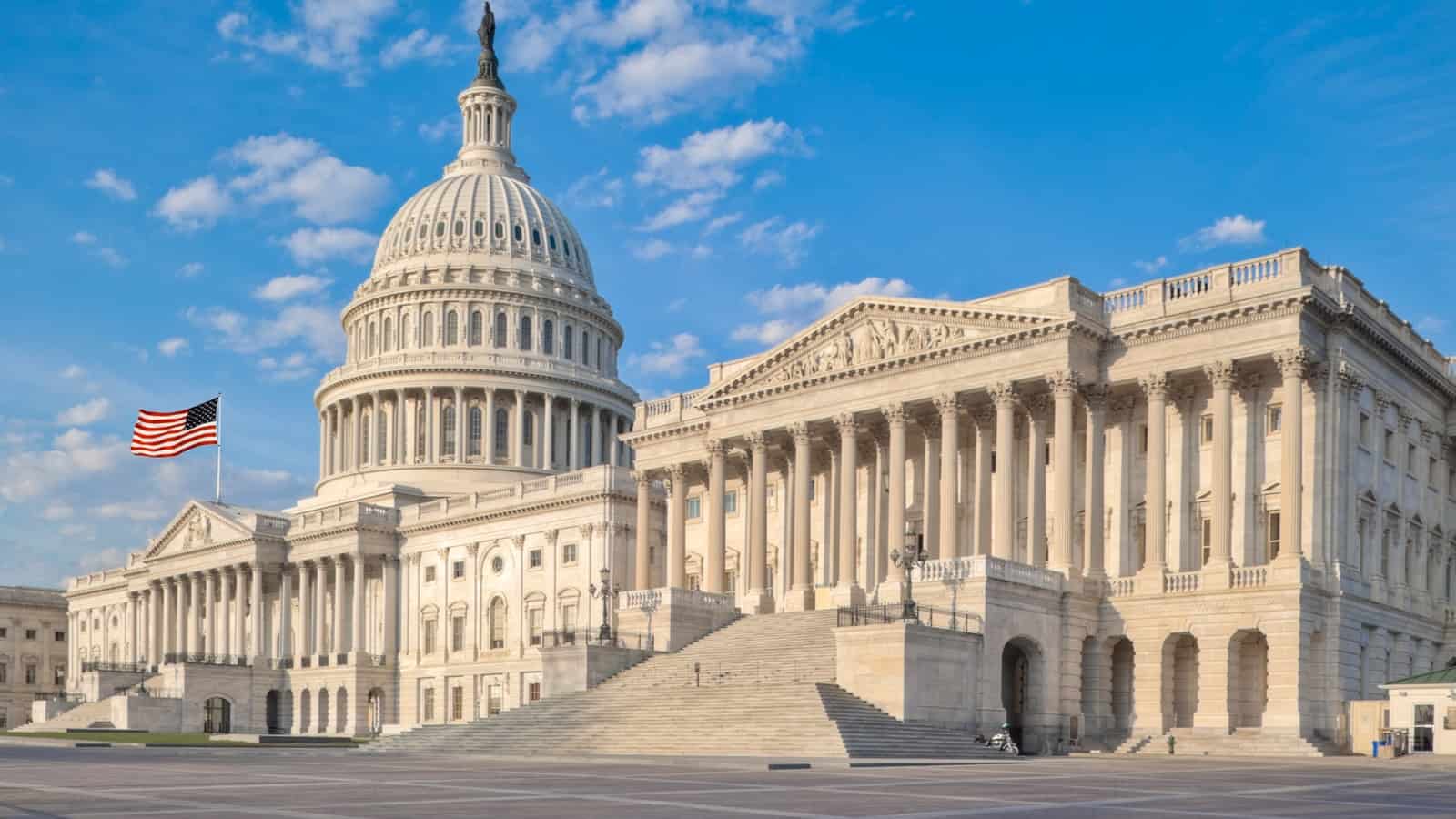
The NAM is pushing back on a proposed “book tax” that would significantly raise taxes and penalize manufacturers for undertaking job creating investments across the country.
What it is: Included in the Build Back Better framework, the book tax imposes a 15% minimum tax on the financial statement — or book income — on corporations with over $1 billion in profits. The provision would be effective for tax years beginning after December 31, 2022.
Why it matters: Imposing a book tax would create a mandatory parallel tax system separate from the current corporate tax system—one that would deny accelerated depreciation (i.e. 100% bonus depreciation) that serves as a powerful pro-growth tool for manufacturers by reducing the after-tax cost of long-lived capital equipment purchases. Under a book tax such purchases would be deducted based on their useful lives.
- According to data from the nonpartisan Joint Tax Committee, the manufacturing sector leads all other sectors in the use of bonus depreciation, meaning that imposing a tax like this would disproportionately impact manufacturers.
What we’re saying: “Employing more than 12 million people who make things in America, paying employees nearly 24% more than the average for all businesses and having the largest economic impact of any major sector, the manufacturing industry has been helping to lead the economic recovery,” said NAM Vice President of Tax and Domestic Economic Policy Chris Netram. “However, imposing a book tax would not only undermine the recovery but also make it harder for the next manufacturing dollar to be spent in America, negatively impacting growth in family-supporting American manufacturing jobs.”
What we’re doing: The NAM is urging Congress to oppose the inclusion of a book tax in reconciliation legislation.
Lack of Miscellaneous Tariff Bill Hamstrings Manufacturers

As manufacturers continue to lead America’s economic recovery, they’re doing so in the face of a real—and avoidable—challenge. Because Congress has failed to act, manufacturers in the United States have been operating without a Miscellaneous Tariff Bill since January, which has led to higher prices, greater difficulty in competing with businesses overseas and harm to American workers.
The context: The MTB temporarily eliminates tariffs on imported materials that are either not made in the United States at all or are not available in sufficient quantities. It boosts American competitiveness and ensures that U.S.-made products are competitive with products manufactured outside of the country.
- Typically, the MTB is reauthorized every few years. In 2018, Congress unanimously passed the Miscellaneous Tariff Bill Act of 2018, which reauthorized the MTB through 2020. Unfortunately, the bill expired at the end of last year, and Congress has failed to act, leaving manufacturers in the United States paying extra taxes of $1.3 million per day on vital products that are not available in this country.
What’s happening now: While the Senate passed MTB legislation in June 2021 as part of the U.S. Innovation and Competition Act, the House still needs to act. If the House doesn’t pass bipartisan MTB legislation soon, manufacturers, their workers and their communities will continue to face unnecessary additional costs—as both Dow and Element Electronics have.
Impact on manufacturers in the U.S.: Manufacturers like Dow are feeling the impact. As prices increase for everyone, manufacturers are also battling rising costs, which makes it difficult to manage cost-effective production and impacts the ability to sustain and expand opportunities for American workers.
- “For Dow, the MTB supports as many as 6,000 jobs across the United States, from Michigan and Texas to Illinois, Kentucky and beyond,” said Eric Friedman, the senior director of federal government affairs at Dow. “Dow is the largest materials sciences company in North America. It is critical for us to ensure that we have competitive access to our essential inputs for our U.S. operations and can manage costs It speaks directly to our U.S. manufacturing competitiveness and the incredible workforce that drives innovation.”
Meanwhile, the tariffs also create higher prices for consumers, making it more difficult for Americans to purchase goods from U.S. companies.
- “The MTB’s expiration has reverberations across multiple product lines that Americans use every day, from textiles to cosmetics to cleaning products and insulation,” said Friedman. “These value chains are inextricably tied together. Rising costs for chemicals impacts the 96% of manufacturing downstream that uses our products to make finished goods for both U.S. and global markets. Making our supply chains cost competitive through MTB also supports our consumers who need to manage their costs.”
The harm to small business: For television producer Element Electronics, headquartered in Winnsboro, South Carolina, the lapse of the MTB has caused a significant readjustment, forcing them to downsize their business and lose workers.
- “As a result of the lapse in the MTB…Element has gone from operating at full capacity and over 520 team members at the end of [2020] to operating just four lines, and employment has dropped to 370 team members,” said David Baer, chief operating officer and general counsel at Element Electronics, in recent congressional testimony.
For Element, restoring the MTB is an urgent matter that would help them compete with companies overseas and reengage with consumers across the country and around the world.
- “Leveling the playing field through retroactively restoring the MTB…will allow Element’s employees to once again successfully compete against anyone,” said Baer. “Moreover, passing this bipartisan legislation will allow Element and many other companies to get back to doing what we do best—employing hundreds of hard-working Americans in good-paying jobs in a community that relies on Element as one of its primary sources of economic growth.”
What we’re saying: “The Miscellaneous Tariff Bill supports manufacturers and their workers who make things in America and who have been instrumental to America’s economic resurgence,” said Ali Aafedt, director of trade facilitation policy at the NAM. “Amidst a global pandemic, severe supply chain shortages and other hurdles, Congress’ lack of action on the MTB is yet another challenge. Congress has the opportunity to support manufacturers, workers and consumers in the United States by passing bipartisan MTB legislation by the end of the year.”
Manufacturers: Getting U.S. Methane Strategy Right Is Critical As We Tackle Climate Change
Washington, D.C. – Following the introduction of a proposed rule on methane regulation, the National Association of Manufacturers Vice President of Energy & Resources Policy Rachel Jones released the following statement.
“Getting the U.S. methane strategy right is critical as we tackle climate change, and manufacturers stand ready to work with the Biden administration and lawmakers on both sides of the aisle to address this pivotal issue in a way that doesn’t harm manufacturing in America.
“Manufacturers are working with the EPA to share their expertise, and many companies are leading the way in rolling out technologies that make it possible to lower both emissions and costs. We look forward to learning specific details of the administration’s full methane strategy as our sector continues to work to make our planet healthy for future generations.”
-NAM-
The National Association of Manufacturers is the largest manufacturing association in the United States, representing small and large manufacturers in every industrial sector and in all 50 states. Manufacturing employs more than 12.4 million men and women, contributes $2.52 trillion to the U.S. economy annually and has the largest economic multiplier of any major sector and accounts for 58% of private-sector research and development. The NAM is the powerful voice of the manufacturing community and the leading advocate for a policy agenda that helps manufacturers compete in the global economy and create jobs across the United States. For more information about the NAM or to follow us on Twitter and Facebook, please visit www.nam.org.
NAM Pushes Back on Pass-Through Tax Adjustment
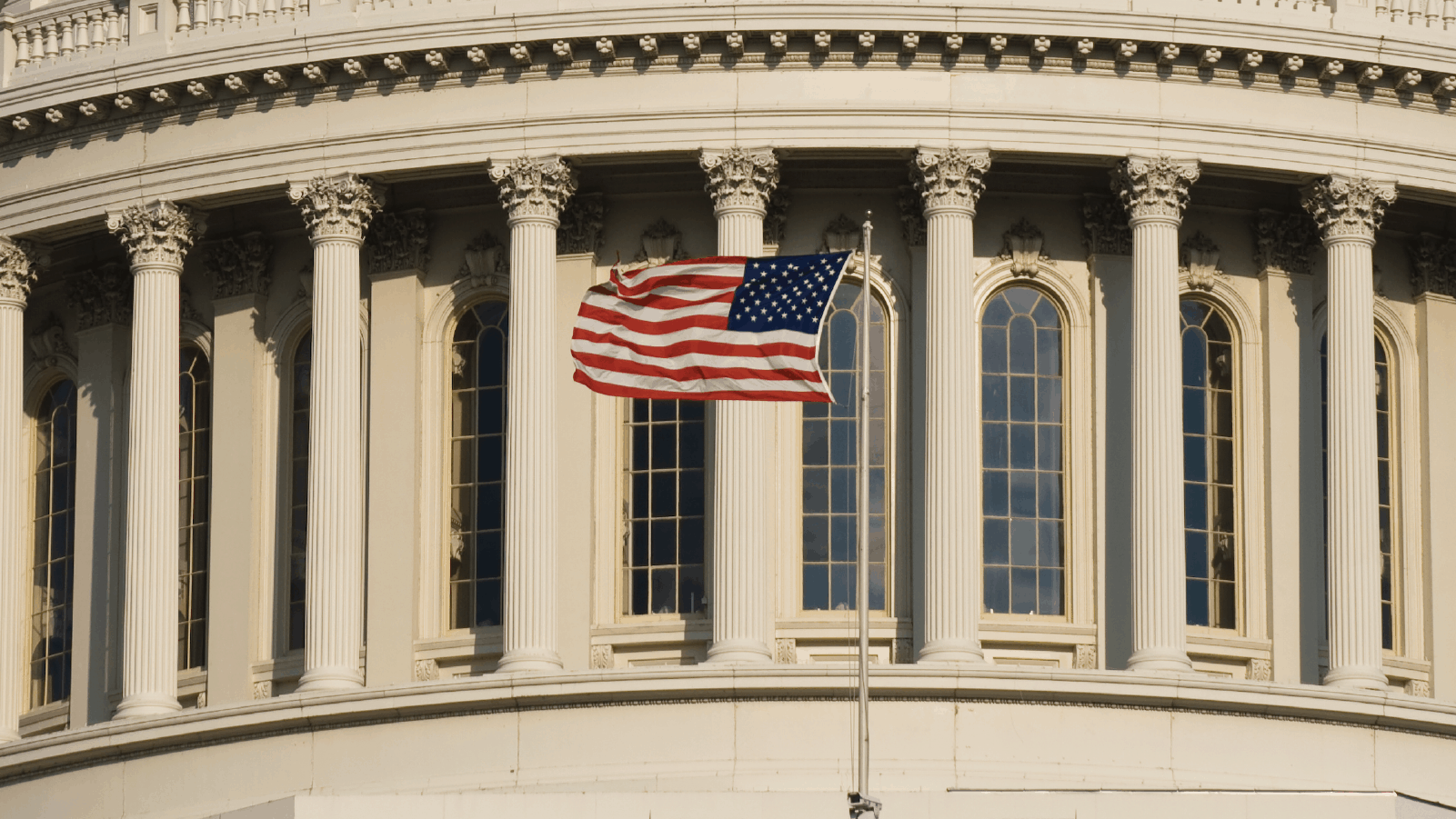
The NAM is urging Congress to scrap a proposed set of tax changes that would harm pass-through entities, including many manufacturers.
The proposal: As Congress continues to hammer out President Biden’s reconciliation bill, members of the House and Senate have been floating new taxes to help pay for the package. Senate Finance Committee Chairman Ron Wyden (D-OR) has released one set of proposals that would change pass-through tax policy in order to raise an estimated $172 billion over 10 years.
The problem: The proposals from Sen. Wyden’s committee could create a series of challenges, including:
- Discouraging partnership formation: The proposal would mandate a complex method for tracking gains and losses, which would likely prevent some partnerships from forming in the first place by making the process more onerous and less rewarding.
- Confusion for existing partnerships: The proposal would make retroactive changes to existing partnerships, creating unnecessary complexity and confusion for pass-through organizations that are already conducting business.
- Barring legitimate transactions: The proposed rules would present some obstacles that are tougher than those imposed on corporations, making it difficult for pass-throughs to conduct legitimate business.
Why it matters: Pass-through entities account for millions of employees and billions of dollars in capital investment. The current structure of pass-through partnership law offers manufacturers a critical way to start and maintain a business—especially for small and medium-sized manufacturers. Altering the tax rules for pass-throughs could change that calculation.
What we’re doing: The NAM has communicated with the committee and will be doing significant outreach to educate Congress on the impact of these proposed rules and to help find the best solutions for a fairer tax code.
What we’re saying: “If enacted, these proposals could discourage new business formation, stifling entrepreneurship, investment and growth,” said NAM Vice President of Tax and Domestic Economic Policy Chris Netram. “The increased complexity in the tax code would be particularly onerous for small and medium-sized manufacturers who could be forced to divert resources from operations to tax compliance.”
One Small Manufacturer Battles Thousands of Counterfeits

If you can buy anything online, how can you make sure that what you’re buying is genuine?
That’s a problem facing consumers and manufacturers alike. According to the NAM’s research, fake and counterfeit products cost the United States $131 billion and 325,000 jobs in 2019 alone—and estimates suggest that global trade in counterfeits exceeds $500 billion per year. The explosive rise of counterfeit goods has heavily impacted manufacturers, requiring them to fight back on a range of fronts.
For Clint Todd—the chief legal officer at Nite Ize, Inc., a manufacturer of mobile, pet and key accessories, as well as hardware, lighting and other products—that challenge is very real and only getting worse.
“In 2019, we took down 75,000 counterfeit listings and websites,” said Todd. “And we’re a small business, so you can guess how large the problem is countrywide.”
Why it’s happening: First, the online nature of e-commerce makes it more difficult to ensure accountability. Many counterfeit products are purchased through third-party sellers that may or may not provide real contact information.
- In practice, many platforms have not been held liable for counterfeit products sold on their platforms by these third-party sellers, even as they facilitate their sale. That means there’s often little manufacturers can do beyond asking the platforms to remove the listing.
- Second, a large proportion of the sellers of counterfeit goods are located in China and Hong Kong, making it much more challenging for U.S. companies to bring effective lawsuits, even if they do have accurate seller contact information.
“You have this odd confluence of laws and tech development and the involvement of another country that has driven this exponential increase in counterfeits,” said Todd. “You don’t have to be a rocket scientist to see how the inability to fight the problem has been detrimental to U.S. businesses.”
How manufacturers respond: Manufacturers and others have been forced into a piecemeal strategy that includes using software tracking services to find fraudulent trademarks and images; working with third-party sites to remove listings for knockoff merchandise; bringing lawsuits against counterfeiters where possible; and coordinating with the International Trade Commission. That strategy is challenging for lots of manufacturers but is particularly hard on small and medium-sized companies that may have fewer resources yet can be devastated when their products are ripped off.
What we need: The NAM’s report, “Countering Counterfeits,” details solutions for the federal government and the private sector, including:
- Requiring e-commerce platforms to reduce the availability of counterfeits;
- Modernizing enforcement laws and tactics to keep pace with counterfeiting technology;
- Streamlining government coordination;
- Improving private-sector collaboration; and
- Empowering consumers to avoid counterfeit goods.
As Todd put it, “It’ll take a multi-stakeholder approach. It’s not just the government. It’s not just manufacturers. It’s not just the online platforms. It has to be a coordinated approach with all those stakeholders to get to the heart of the matter.”
What the NAM is doing: The NAM is leading the effort against counterfeiting and has already made significant headway with policymakers. Among its recent highlights:
- After years of NAM advocacy, the Department of Homeland Security has implemented the Synthetics Trafficking and Overdose Prevention (STOP) Act of 2018, which steps up screenings for international mail shipments—one way in which counterfeits get into the U.S.
- In late 2020, Congress also implemented several NAM recommendations, including bolstering federal oversight at U.S. ports; cracking down on scammers and other bad actors exploiting the pandemic by producing fake goods or engaging in price gouging; and allowing the FDA to seize and destroy dangerous counterfeit medical devices.
- Both the Senate and House have seen the introduction of bipartisan bills that incorporate NAM recommendations on addressing the sale of counterfeits through online platforms.
The last word: “People need to understand the scope of the problem and how pervasive it has become,” said Todd. “Everyone needs to know how often counterfeits and knockoffs are affecting U.S. companies and how expensive and difficult it is to combat the problem with the tools we have at our disposal now.”
NAM Pushes Back on Global Minimum Tax Increase
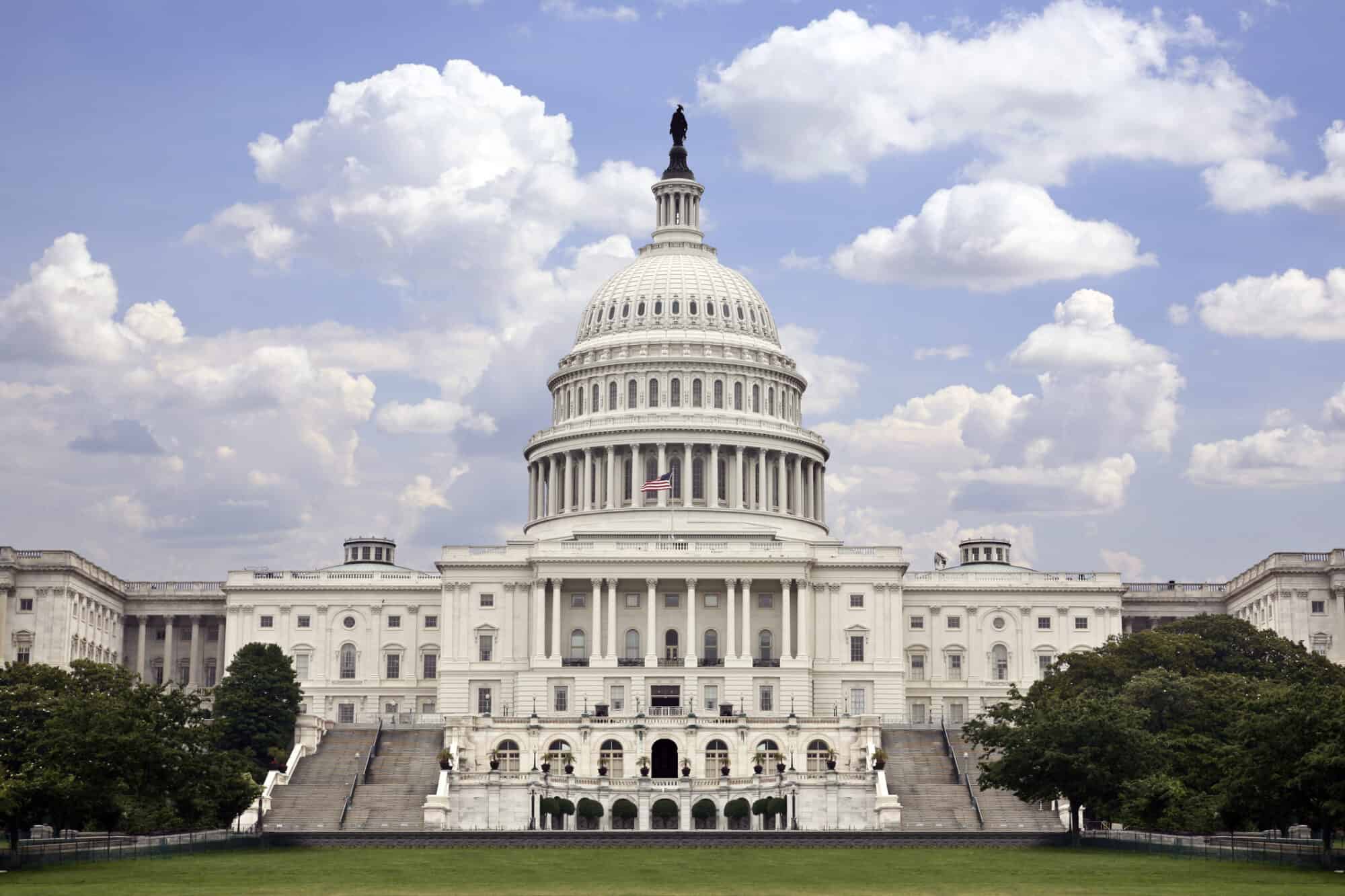
The NAM is fighting against congressional efforts to increase the minimum tax on U.S. companies’ foreign earnings above the rate recently reached by a global minimum tax deal—thereby putting globally engaged manufacturers at a significant disadvantage.
The context: For a number of years, the Organisation for Economic Co-operation and Development has been leading global tax negotiations that would fundamentally reshape the current international tax system. A centerpiece of the effort is a 15% global minimum tax that more than 130 countries signed off on earlier this month. The deal is intended to be implemented in 2023.
The U.S. angle: The United States already has a global minimum tax, called the global intangible low-taxed income tax, or GILTI, which operates as a minimum tax on the foreign earnings of U.S. multinational corporations. Now, Congress is considering increasing it as part of the reconciliation legislation. In particular, the pending House reconciliation bill would increase the GILTI rate from the current 13.125% tax rate to 17.4%—above the proposed global minimum tax rate.
The problem: The NAM has made clear that the United States shouldn’t move forward with any changes to GILTI before other countries implement a minimum tax, and that the U.S. shouldn’t have a minimum tax regime that results in a higher tax burden than the rest of the world. Such a burden on globally engaged companies would make it more difficult for these companies, including manufacturers, to compete and succeed in the global marketplace.
What we’re saying: “If Congress adopts a harsher tax regime than the rest of the world, it would tilt the scales against manufacturers and manufacturing workers in the U.S.,” said NAM Vice President of Tax and Domestic Economic Policy Chris Netram. “A harsher regime would harm manufacturers, reducing their ability to compete around the world and invest in high-paying jobs here at home.”
Learn more: One NAM study showed that proposed harmful changes to the GILTI regime could cost up to 1 million U.S. jobs.
NAM Sues SEC to Maintain Proxy Firm Oversight

The NAM is stepping up to protect a hard-won victory on an issue critical to public company governance—oversight of proxy advisory firms.
The background: Proxy firms advise institutional investors (like retirement fund managers) on how to vote on the policies of the companies they invest in. The problem is that the two main proxy firms—ISS and Glass Lewis—have generally operated without any oversight, and as a result, their work has relied on questionable methodologies and ignored conflicts of interest. These issues have often caused problems for manufacturers and their shareholders given the power these firms wield.
- Last year, following years of advocacy by the NAM, the Securities and Exchange Commission finalized a rule that provides targeted oversight of these firms. The rule requires that proxy firms disclose conflicts of interest and create procedures to give companies a chance to respond to their recommendations.
The problem: Following the change in presidential administrations, the SEC announced that it is taking steps to revise or rescind the rule that was finalized last year. On top of that, it has suspended enforcement of the rule during the review process and plans to prevent many provisions from going into effect as planned on Dec. 1.
Our move: The NAM is filing suit against the SEC for refusing to enforce the rule without going through the official process to change or replace it, as required under the Administrative Procedure Act. Agencies cannot set aside regulations they happen to disagree with, and the NAM is contending that the SEC has acted unlawfully by effectively rescinding the rule without inviting public comment on its impact on market participants, including manufacturers. Of course, the NAM also intends to fight any effort to revise or rescind the rule under normal procedures, but that comes later.
The stakes: If the NAM wins the suit, the SEC will have to leave the rule on the books until it comes up with substitute regulations through notice-and-comment rulemaking, and proxy firms will have to comply with the basic safeguards required under the rule.
The last word: “The SEC’s rule on proxy advisory firms was a victory for manufacturers, but also for accountability and transparency,” said NAM Senior Vice President and General Counsel Linda Kelly. “The NAM intends to stand up for this rule, to hold the SEC to its responsibilities and to ensure that manufacturers on the public market and manufacturing workers with retirement savings are protected from proxy firms’ outsized influence.”
Manufacturers Fight SEC’s About-Face on Proxy Advisory Rule
Washington, D.C. – The National Association of Manufacturers filed a complaint in federal court against the Securities and Exchange Commission for its nonenforcement of the lawfully adopted 2020 final rule on proxy advisory firms—unregulated third parties with outsized influence on shareholder votes and manufacturers’ corporate governance policies.
“The SEC is changing course, attempting to suspend a commonsense rule that enhances transparency into the work of proxy advisory firms without any opportunity for public comment by the NAM or anyone else,” said NAM President and CEO Jay Timmons. “When the SEC finalized this reasonable, light-touch regulation, manufacturers strongly supported these necessary reforms because they protect the interests of manufacturing workers, retirees and everyday investors. The NAM Legal Center is filing suit to protect manufacturers from this unlawful about-face and to ensure that this rule stays on the books.”
Background:
The NAM has long advocated increased oversight of proxy advisory firms—little-known, unregulated entities that exert enormous influence over publicly traded manufacturers. These firms have significant conflicts of interest and issue error-filled, one-size-fits-all proxy voting recommendations that can impact the direction of a business and the value of investors’ shares. In July 2020, the SEC issued final regulations limiting proxy firms’ outsized influence, a move Timmons called a “long-sought, major win for the industry and millions of manufacturing workers.”
In October 2020, the NAM filed a motion to intervene in ISS v. SEC (ISS’s attempt to overturn the rule), followed by a motion for summary judgment outlining why the SEC’s lawful, reasonable and minimally invasive rule must be upheld. In June 2021, the SEC announced it was reviewing the rule and suspending enforcement thereof, at which point NAM Senior Vice President and General Counsel Linda Kelly made clear that the NAM would fight “any efforts to bypass the required notice-and-comment process to keep this lawfully issued rule on ice indefinitely.”
-NAM-
The National Association of Manufacturers is the largest manufacturing association in the United States, representing small and large manufacturers in every industrial sector and in all 50 states. Manufacturing employs more than 12.4 million men and women, contributes $2.52 trillion to the U.S. economy annually and has the largest economic multiplier of any major sector and accounts for 58% of private-sector research and development. The NAM is the powerful voice of the manufacturing community and the leading advocate for a policy agenda that helps manufacturers compete in the global economy and create jobs across the United States. For more information about the NAM or to follow us on Twitter and Facebook, please visit www.nam.org.
